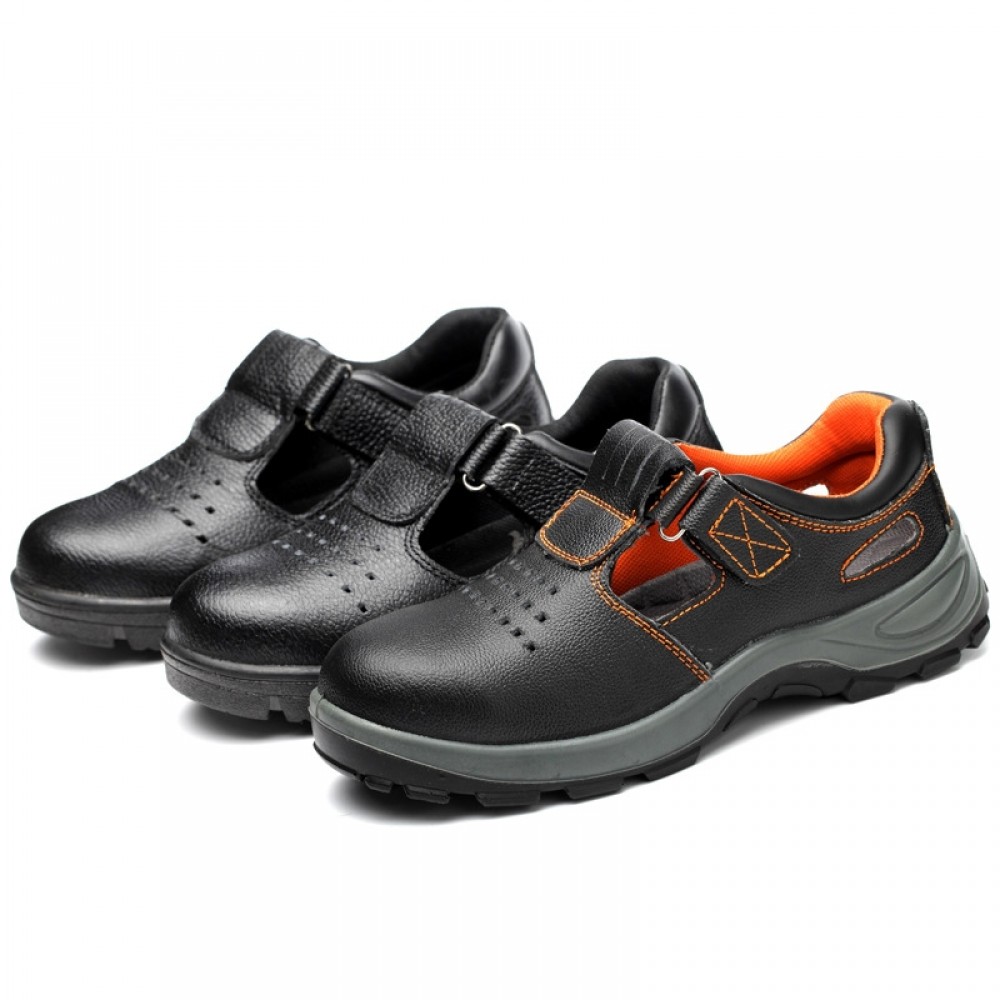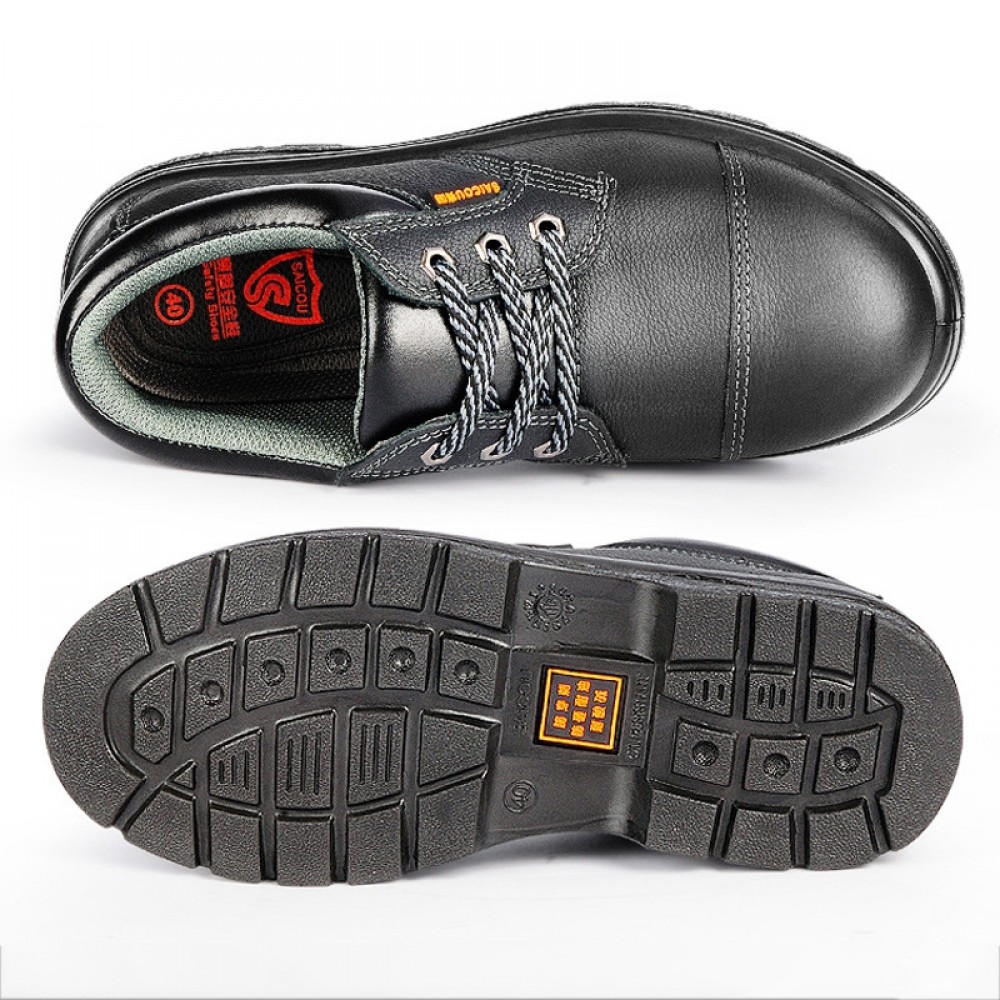Why Slip-Resistant Shoes Matter in the Workplace
Slips, trips, and falls are a major concern in the workplace, resulting in thousands of injuries and fatalities every year. According to the Occupational Safety and Health Administration (OSHA), slips, trips, and falls account for 20-30% of all workplace injuries, with the majority of these incidents occurring on the same level, such as on floors, walkways, and stairs. The consequences of these accidents can be severe, ranging from minor bruises and sprains to broken bones, head trauma, and even death.
The importance of wearing slip-resistant shoes in the workplace cannot be overstated. Non slip work shoes slip on can significantly reduce the risk of slips, trips, and falls, thereby preventing accidents and ensuring a safe working environment. By wearing slip-resistant shoes, workers can feel more confident and secure on the job, allowing them to focus on their tasks without worrying about their safety. Moreover, slip-resistant shoes can also reduce the financial burden of workplace accidents, which can be substantial in terms of medical expenses, lost productivity, and workers’ compensation claims.
In addition to the safety benefits, slip-resistant shoes can also improve overall work performance. When workers feel secure and confident in their footwear, they are more likely to be productive, efficient, and focused on their tasks. This, in turn, can lead to increased job satisfaction, reduced turnover rates, and improved employee morale. By investing in high-quality, slip-resistant footwear, employers can demonstrate their commitment to workplace safety and their employees’ well-being, fostering a positive and supportive work environment.
What Makes a Good Slip-Resistant Work Shoe?
When it comes to selecting a good slip-resistant work shoe, there are several key features to look for. A high-quality slip-resistant work shoe should have a combination of design elements and materials that work together to provide excellent traction and stability on various surfaces. Here are some of the most important factors to consider:
Outsole Material: The outsole is the most critical component of a slip-resistant work shoe. Look for shoes with outsoles made from high-quality, slip-resistant materials such as rubber or polyurethane. These materials provide excellent grip on wet, oily, and slippery surfaces.
Tread Pattern: The tread pattern on the outsole is also crucial for slip resistance. A good tread pattern should have deep grooves and lugs that can channel water and other liquids away from the surface, providing a secure grip. Look for shoes with unique tread patterns that are specifically designed for slip resistance.
Slip-Resistant Coatings: Some slip-resistant work shoes feature special coatings or treatments that enhance their slip-resistance. These coatings can be applied to the outsole or the entire shoe and provide an extra layer of protection against slips and falls.
Upper Materials: The upper material of the shoe should be breathable, durable, and comfortable. Look for shoes with uppers made from high-quality materials such as leather, mesh, or synthetic materials.
Non Slip Work Shoes Slip On: When shopping for slip-resistant work shoes, look for shoes that are specifically designed for slip-on convenience. Non slip work shoes slip on provide ease of use and can be quickly slipped on and off, making them ideal for workers who need to move quickly and efficiently.
By considering these key features, you can find a slip-resistant work shoe that meets your specific needs and provides the protection and comfort you need to perform your job safely and effectively.
How to Choose the Right Slip-Resistant Work Shoe for Your Job
Selecting the right slip-resistant work shoe for your job or industry can be a daunting task, especially with the numerous options available in the market. However, by considering a few key factors, you can find a shoe that meets your specific needs and provides the protection and comfort you need to perform your job safely and effectively.
Job Requirements: The first step in choosing the right slip-resistant work shoe is to consider the specific requirements of your job. Think about the tasks you perform on a daily basis and the hazards you face. Do you work in a wet or oily environment? Do you need to climb ladders or walk on uneven surfaces? Identifying the specific hazards and challenges of your job will help you determine the type of slip-resistant shoe you need.
Work Environment: The work environment is another critical factor to consider when choosing a slip-resistant work shoe. Think about the surfaces you walk on, the temperature and humidity levels, and the presence of chemicals or other hazards. For example, if you work in a cold and wet environment, you may need a shoe with a waterproof membrane and a good grip to prevent slipping on icy surfaces.
Personal Comfort: Personal comfort is also an essential factor to consider when choosing a slip-resistant work shoe. Think about the features that matter most to you, such as cushioning, arch support, and breathability. A comfortable shoe can help reduce fatigue and improve your overall performance.
Non Slip Work Shoes Slip On: When shopping for slip-resistant work shoes, look for shoes that offer slip-on convenience. Non slip work shoes slip on provide ease of use and can be quickly slipped on and off, making them ideal for workers who need to move quickly and efficiently.
Industry-Specific Needs: Different industries have unique needs when it comes to slip-resistant work shoes. For example, construction workers may need shoes with steel toes and puncture-resistant soles, while healthcare workers may need shoes with slip-resistant soles and breathable uppers. By considering the specific needs of your industry, you can find a shoe that meets your requirements and provides the protection and comfort you need.
By considering these factors, you can find a slip-resistant work shoe that meets your specific needs and provides the protection and comfort you need to perform your job safely and effectively.
Top Slip-On Work Shoes for Slip-Resistant Performance
When it comes to slip-resistant work shoes, there are many great options available on the market. Here are some top-rated slip-on work shoes that offer excellent slip-resistance and are worth considering:
Dr. Martens Ironbridge: The Dr. Martens Ironbridge is a popular choice among workers who need a reliable and comfortable slip-resistant shoe. It features a rugged outsole with deep grooves and lugs that provide excellent traction on wet and oily surfaces.
Timberland PRO Boondock: The Timberland PRO Boondock is a high-quality slip-resistant work shoe that is designed for workers who need a shoe that can keep up with their demanding job requirements. It features a rugged outsole with a unique tread pattern that provides excellent grip on various surfaces.
New Balance 626v2: The New Balance 626v2 is a versatile slip-resistant work shoe that is suitable for a variety of industries, including construction, manufacturing, and healthcare. It features a slip-resistant outsole with a unique tread pattern that provides excellent traction on wet and dry surfaces.
Non slip work shoes slip on are ideal for workers who need to move quickly and efficiently. They provide ease of use and can be quickly slipped on and off, making them perfect for workers who need to respond to emergencies or move between tasks quickly.
When shopping for slip-on work shoes, look for shoes that meet the ASTM standards for slip resistance. This ensures that the shoes have been tested and meet the required standards for slip resistance.
In addition to slip resistance, consider other factors such as comfort, durability, and breathability when selecting a slip-on work shoe. A good slip-on work shoe should provide excellent support and comfort, while also being durable enough to withstand the demands of your job.
By considering these factors and choosing a high-quality slip-on work shoe, you can ensure that you have the protection and comfort you need to perform your job safely and effectively.
The Benefits of Slip-On Work Shoes: Convenience and Comfort
Slip-on work shoes offer a range of benefits that can improve overall work performance and safety. One of the most significant advantages of slip-on work shoes is their convenience. Non slip work shoes slip on provide ease of use, allowing workers to quickly slip them on and off as needed. This is particularly useful in industries where workers need to move quickly and efficiently, such as in healthcare or manufacturing.
In addition to their convenience, slip-on work shoes are also designed to provide exceptional comfort. Many slip-on work shoes feature cushioning, arch support, and breathable materials that help reduce fatigue and discomfort. This is especially important for workers who spend long hours on their feet, as comfortable shoes can help improve productivity and reduce the risk of injury.
Another benefit of slip-on work shoes is their versatility. They can be worn in a variety of industries and environments, from construction sites to healthcare facilities. This makes them an excellent choice for workers who need a shoe that can keep up with their demanding job requirements.
Furthermore, slip-on work shoes are often designed with safety in mind. Many feature slip-resistant outsoles and rugged materials that can withstand the demands of heavy use. This makes them an excellent choice for workers who need a shoe that can provide protection and support in hazardous environments.
Overall, slip-on work shoes offer a range of benefits that can improve overall work performance and safety. By providing convenience, comfort, and versatility, they can help workers stay safe and productive on the job.
Slip-Resistant Work Shoes: A Key Component of Workplace Safety
A comprehensive workplace safety strategy involves a combination of measures to prevent accidents and ensure a safe working environment. One of the most critical components of this strategy is the use of slip-resistant work shoes. Non slip work shoes slip on are designed to provide traction and stability on slippery surfaces, reducing the risk of slips, trips, and falls.
In addition to slip-resistant footwear, a comprehensive workplace safety strategy should include other measures such as training, hazard identification, and regular safety audits. Training programs can educate workers on the importance of safety and how to identify and mitigate hazards. Hazard identification involves identifying potential hazards in the workplace and taking steps to mitigate them. Regular safety audits can help identify areas for improvement and ensure that safety protocols are being followed.
Slip-resistant work shoes are a critical component of this strategy because they provide a last line of defense against accidents. Even with proper training and hazard identification, accidents can still occur. Slip-resistant work shoes can help prevent these accidents by providing traction and stability on slippery surfaces.
Employers can also take steps to ensure that their workers are wearing slip-resistant work shoes. This can include providing shoes as part of a uniform, offering discounts or incentives for workers who purchase slip-resistant shoes, and conducting regular safety inspections to ensure that workers are wearing the proper footwear.
By combining slip-resistant work shoes with other safety measures, employers can create a comprehensive workplace safety strategy that reduces the risk of accidents and ensures a safe working environment.
Slip-Resistant Work Shoes for Specific Industries: Meeting Unique Needs
Different industries have unique requirements when it comes to slip-resistant work shoes. For example, construction workers need shoes that can withstand rough terrain and heavy materials, while healthcare workers require shoes that are easy to clean and resistant to bodily fluids. Food service workers, on the other hand, need shoes that are slip-resistant and easy to clean, with a focus on comfort and durability.
In the construction industry, non slip work shoes slip on with rugged outsoles and durable materials are essential. Shoes like the Timberland PRO Boondock Work Shoe, with its rugged outsole and breathable mesh upper, are ideal for construction workers. In the healthcare industry, shoes like the New Balance 626v2 Work Shoe, with its slip-resistant outsole and easy-to-clean upper, are popular among healthcare workers.
In the food service industry, shoes like the Dr. Martens Ironbridge Work Shoe, with its slip-resistant outsole and comfortable air-cushioned sole, are a favorite among food service workers. These shoes are designed to provide comfort and support during long hours on your feet, while also providing the necessary slip-resistance to prevent accidents.
In addition to these industries, other industries such as manufacturing, warehousing, and oil and gas also have unique requirements for slip-resistant work shoes. By understanding the specific needs of each industry, workers can choose the right slip-resistant work shoes to meet their needs and stay safe on the job.
When selecting slip-resistant work shoes for a specific industry, it’s essential to consider factors such as job requirements, work environment, and personal comfort. By doing so, workers can ensure that they are wearing the right shoes for their job, and reducing the risk of accidents and injuries.
Conclusion: Step into Safety with the Right Slip-Resistant Work Shoes
In conclusion, slip-resistant work shoes are a crucial component of workplace safety. By understanding the importance of slip-resistant shoes, knowing what to look for in a good slip-resistant work shoe, and selecting the right shoe for your job or industry, workers can significantly reduce the risk of slips, trips, and falls. Additionally, incorporating slip-resistant work shoes into a comprehensive workplace safety strategy can help prevent accidents and ensure a safe working environment.
Investing in high-quality, non slip work shoes slip on is a small price to pay for the safety and well-being of workers. With the right slip-resistant work shoes, workers can feel confident and focused on their job, without worrying about the risks of slips, trips, and falls. By prioritizing workplace safety and investing in the right footwear, employers can create a safer, more productive work environment for their employees.
Remember, slip-resistant work shoes are not just a necessity, but a vital investment in the safety and success of your workforce. So, step into safety with the right slip-resistant work shoes and create a workplace where everyone can thrive.








